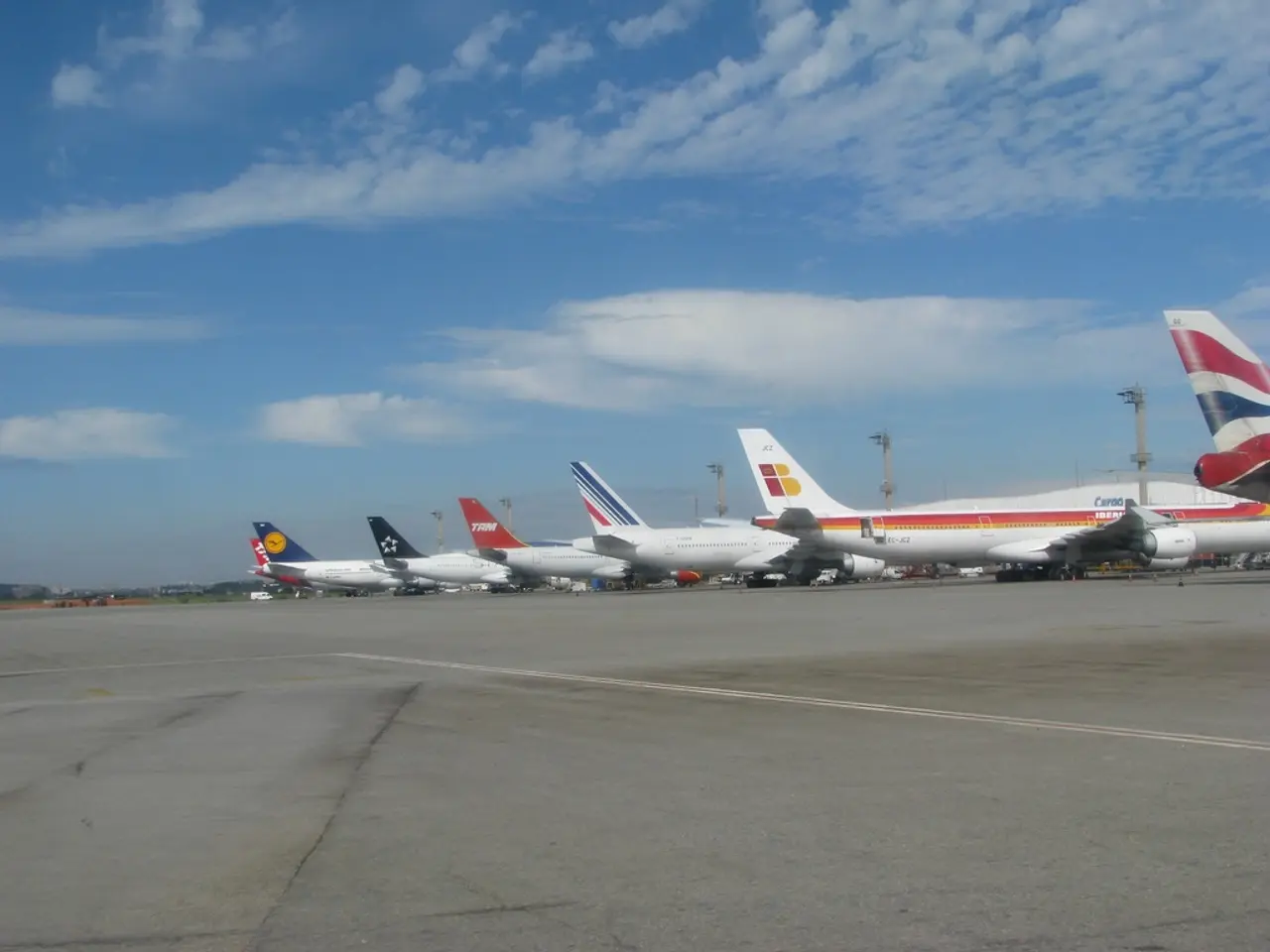Lufthansa CEO raises alarm over decreasing connectivity in Germany
In a recent interview with "Bild am Sonntag," Carsten Spohr, CEO of Deutsche Lufthansa, expressed concerns about the impact of rising state fees and regulations on the German economy and airports. Specifically, Spohr pointed to the increase in aviation taxes by 19-25% from May 1, 2024, and a 50% rise in security fees from January 1, 2025, as significant cost burdens for airlines operating in Germany.
These higher taxes and fees, according to Spohr, could lead to capacity cuts, limiting airline operations and connectivity. This reduction in flight capacity has already been observed, with Ryanair announcing a 12% cut in German summer capacity. Spohr fears that this could further shrink flight plans and negatively impact the quality of connectivity of many important economic regions in international comparison.
The potential economic impacts include reduced passenger traffic, lower revenues for airports, and diminished competitive positioning of Germany in the European aviation market. Spohr also warned that these regulations and fees may constrain Lufthansa’s ability to expand and invest within Germany, potentially affecting jobs and economic growth linked to aviation and related industries.
In addition to these concerns, Spohr highlighted the blending quota for E-fuels as an example of upcoming state regulations that could further worsen the situation. The blending quota for E-fuels, a measure decided by the federal government to reduce CO2 emissions of aircraft, could potentially lead to increased costs for airlines due to its implementation. Eurowings and Ryanair have already cancelled numerous flight connections in Germany due to high fees.
Spohr's concerns about the connectivity of the German economic hub are rooted in the potential negative impacts of state regulations and high fees on airlines. He believes that these policies could undermine the aviation sector's recovery and growth after recent challenges. As the aviation industry continues to navigate these changes, the future of connectivity and economic growth in Germany remains uncertain.
- The aviation industry, including businesses like Lufthansa and Ryanair, operates under the influence of policy-and-legislation and politics, as shown by Carsten Spohr's concerns about rising state fees and regulations.
- Changes in the finance sector, such as increased aviation taxes and security fees, could have a significant impact on the transportation industry, potentially leading to cuts in flight capacity and higher expenses for airlines.
- The general-news landscape is abuzz with discussions about the potential economic consequences of these changes, which may include reduced passenger traffic, lower revenues for airports, and an unfavorable competitive position in the European aviation market.
- Besides the immediate concerns about aviation, Spohr also highlighted upcoming regulations like the blending quota for E-fuels, which could further contribute to increased costs for airlines and potentially worsen the situation, affecting the recovery and growth of the industry in Germany.



